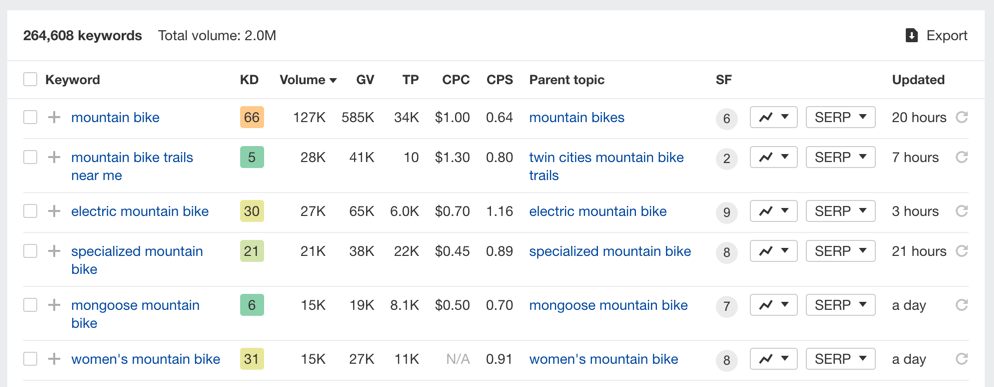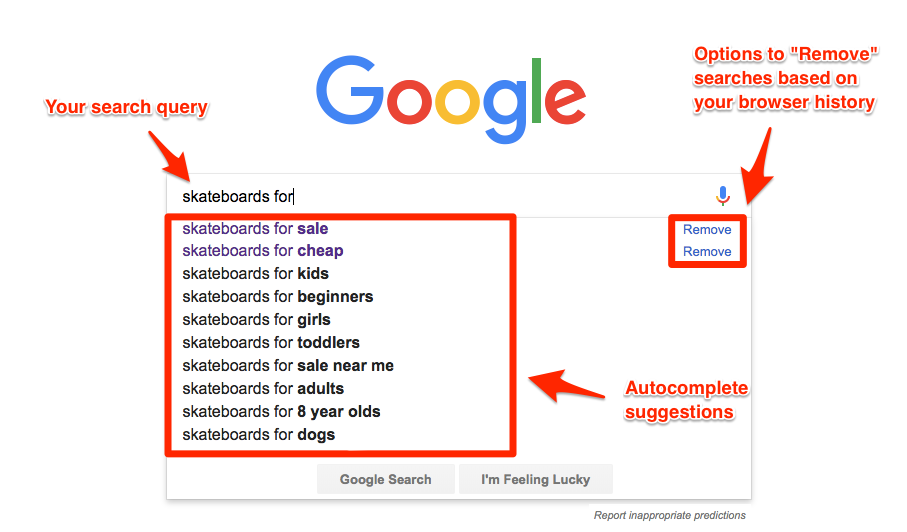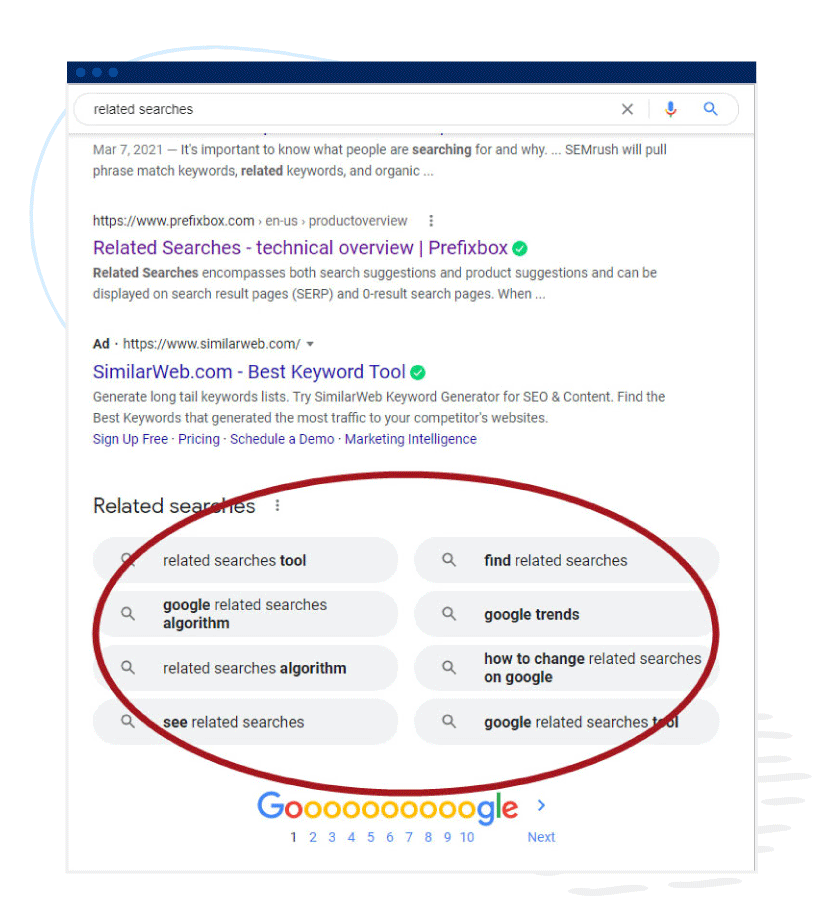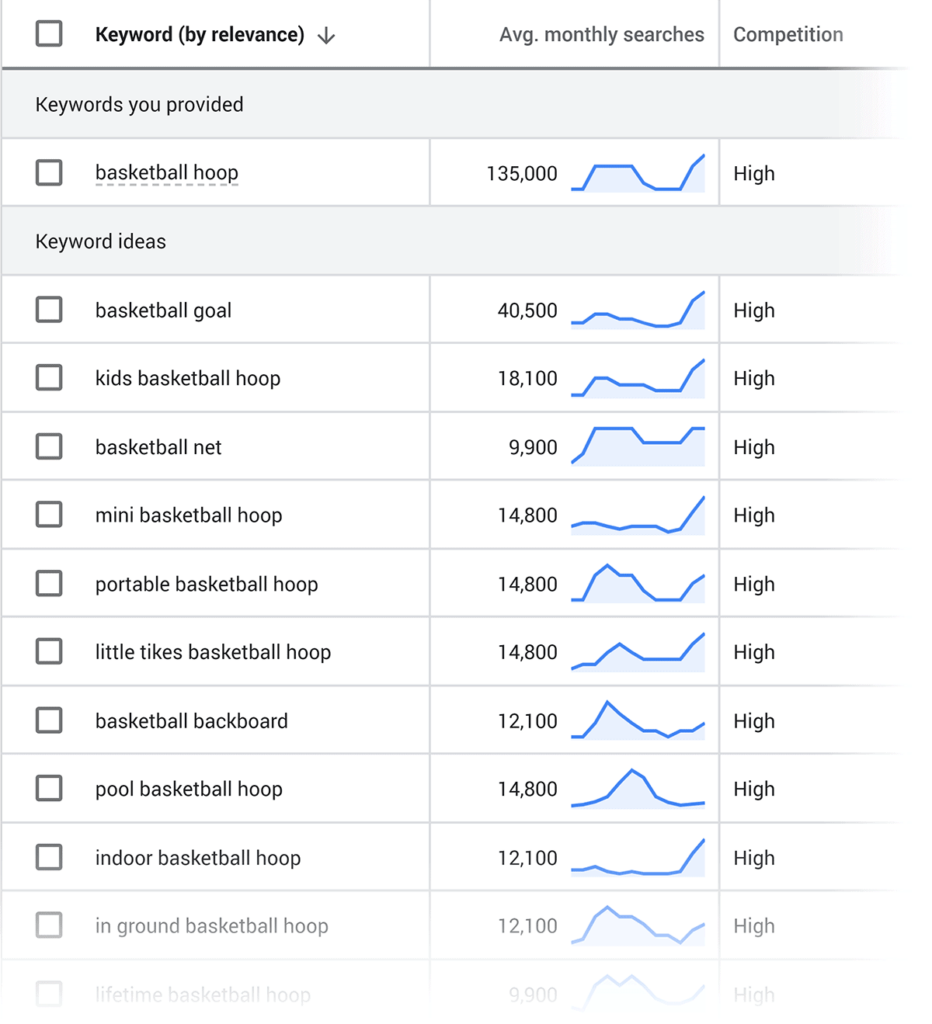Keyword research is the foundation of any successful SEO strategy.
It involves identifying relevant keywords and phrases that your target audience is searching for on search engines.
By understanding these keywords, you can optimise your content and website to attract more organic traffic.
In this comprehensive guide, we’ll walk you through the process of conducting thorough keyword research, complete with example screenshots to illustrate each step.
Let’s get started!
What is keyword research?
Keyword research is the process of finding and analysing search terms that people enter into search engines with the goal of using that data for a specific purpose, often for search engine optimisation (SEO) or general marketing.
Keyword research can uncover queries to target, the popularity of these queries, their ranking difficulty, and more.
Why is keyword research important?
Keyword research is essential for several reasons, as it plays a vital role in the success of your online presence, whether you have a website, blog, e-commerce store, or any other digital platform.
Here are the key reasons why keyword research is important:
- Improved Search Engine Rankings: By conducting keyword research, you can identify the most relevant and valuable keywords related to your content or products. Optimising your website for these targeted keywords improves your chances of ranking higher in search engine results, leading to increased visibility and organic traffic.
- Relevant Traffic Generation: Targeting the right keywords ensures that you attract relevant traffic to your website. When users search for specific keywords related to your content, products, or services, they are more likely to be interested in what you offer, leading to higher conversion rates.
- Understanding User Intent: Keyword research helps you understand what users are looking for and their search intent. This insight allows you to create content or product offerings that align with user needs, improving the overall user experience.
- Content Optimisation: Identifying relevant keywords enables you to optimise your website’s content to align with user search queries. This optimization includes incorporating keywords in meta tags, headers, and content, making your pages more search engine friendly.
- Competitive Analysis: Through keyword research, you can analyze your competitors’ keyword strategies. Understanding which keywords they are targeting can help you identify new opportunities or gaps in the market.
- Long-Term SEO Strategy: Keyword research is a fundamental part of your long-term SEO strategy. As search trends and user behavior evolve, continuously updating and refining your keyword targeting ensures your website remains relevant and competitive.
- Google Ad Campaigns and PPC: For businesses running pay-per-click (PPC) advertising campaigns, keyword research is critical. By targeting the right keywords in your ad campaigns, you can improve your ad’s relevance score, ad placement, and ultimately, your return on investment (ROI).
- Content Ideation: Keyword research can inspire new content ideas. By identifying topics and queries that users are actively searching for, you can create valuable and relevant content that meets their needs.
- Niche Identification: Keyword research helps you identify potential niches or untapped markets. By discovering low-competition keywords with decent search volume, you can position yourself as an authority in that area.
- Tracking and Measurement: Keyword research provides a foundation for tracking the performance of your website and content. By monitoring how specific keywords drive traffic and conversions, you can make data-driven decisions to improve your online presence.
Step 1: Brainstorm Seed Keywords
Start by brainstorming seed keywords that are relevant to your website or business.
These are broad terms that describe the main topics or products you offer.
Use your industry knowledge and consider what your potential customers might search for.
For example, if you have a website selling fitness equipment, your seed keywords could be “fitness equipment,” “exercise gear,” and “gym accessories.”
Step 2: Use Google Autocomplete
Google Autocomplete is a helpful feature that suggests search queries as you type in the search bar.
Take advantage of this to find related keywords and phrases.
Start typing your seed keywords into Google, and it will display a dropdown list of suggestions.
These suggestions are popular searches related to your seed keyword.
Here’s an example screenshot of using Google Autocomplete for the seed keyword “fitness equipment”:
Google Autocomplete Example:
Step 3: Explore Google Related Searches
At the bottom of the search results page, you’ll find a section called “People also ask” and “Related searches.” These are additional keyword ideas that users commonly search for related to your seed keyword. Click on these related searches to reveal more keyword ideas.
Here’s an example screenshot of Google’s “Related searches” for the seed keyword “fitness equipment”:
Google Related Searches Example
Step 4: Use Keyword Research Tools
Keyword research tools are valuable resources for finding a wide range of relevant keywords and analyzing their search volumes, competition, and more. Some popular keyword research tools include Google Keyword Planner, SEMrush, Ahrefs, and Moz Keyword Explorer.
For this guide, we’ll use Google Keyword Planner, which is free to use with a Google Ads account. Sign in to your Google Ads account, go to “Tools & Settings,” and select “Keyword Planner.” Click on “Discover new keywords” and enter your seed keyword(s).
Here’s an example screenshot of Google Keyword Planner for the seed keyword “fitness equipment”:
Google Keyword Planner Example
Step 5: Analyse Keyword Metrics
When using keyword research tools, pay attention to the following metrics:
- Search Volume: The average number of monthly searches for a specific keyword.
- Competition: The level of competition for a keyword. High competition indicates it may be challenging to rank for that keyword.
- Keyword Difficulty: A metric that estimates how difficult it is to rank for a keyword. Higher scores indicate higher difficulty.
- Cost Per Click (CPC): If you’re running Google Ads, this shows the average cost-per-click for that keyword.
Select keywords that have a balance of decent search volume, manageable competition, and relevance to your content.
Step 6: Find Long-Tail Keywords
Long-tail keywords are longer, more specific phrases that usually have lower search volumes but higher intent.
They are valuable because they often indicate more specific user needs.
Include long-tail keywords in your content to target a more focused audience.
To find long-tail keywords, use the same keyword research tools and explore variations of your seed keywords.
You can also use question-based queries, such as “best fitness equipment for home gym” or “how to use fitness equipment.”
Step 7: Organise and Prioritise Keywords
After gathering a list of potential keywords, organise them into relevant groups or themes.
Prioritise keywords based on their relevance, search volume, and competition.
Focus on keywords that align closely with your content and business goals.
Step 8: Monitor and Refine
Keyword research is an ongoing process.
Regularly monitor the performance of your chosen keywords using tools like Google Analytics and Google Search Console.
Adjust your keyword strategy as needed based on user behavior and changes in your industry.
Conclusion
By following this step-by-step guide to conducting thorough keyword research, you’ll be well-equipped to optimise your website and content for relevant keywords that will attract more organic traffic.
Remember to regularly review and refine your keyword strategy to stay ahead in the ever-changing landscape of search engine optimisation.
Happy keyword researching!










